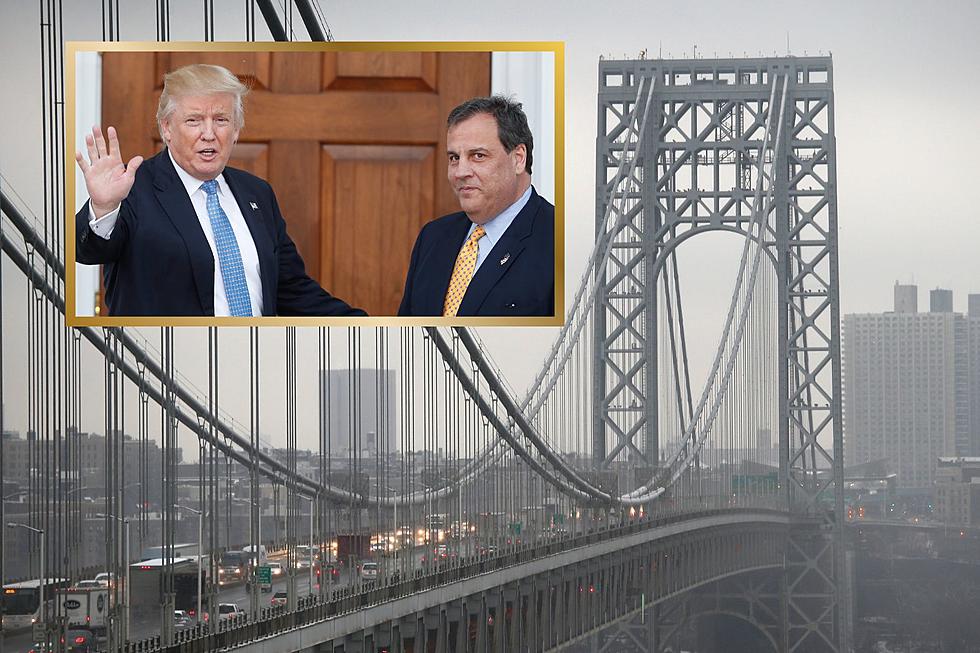
Christie tax decision could soak commuters between NJ and PA
UPDATE: Gov. Chris Christie on Friday pulled out of the tax agreement that protected New Jersey-Pennsylvania commuters.
Below is our report from a day earlier explaining the decision's impact.
TRENTON — Roughly a quarter-million commuters from New Jersey and Pennsylvania could see a major change in how they pay their income taxes, depending on a decision by Gov. Chris Christie that is expected Friday.
In June, when he enacted New Jersey’s 2017 state budget, Christie directed his Treasury Department to study whether to dissolve a reciprocal income-tax agreement with Pennsylvania under which cross-border commuters pay taxes to the state where they live rather than work.
A former state treasurer says it could net $180 million in additional taxes for New Jersey, paid by high-income Pennsylvania residents who work in New Jersey.
But lower-income New Jerseyans who work in the Keystone State, especially South Jerseyans working in Philadelphia, could face a tax increase – not only paying a higher rate, but also losing a tax credit for Philly’s wage tax.
A governor can end the agreement with 120 days’ notice, and it wouldn’t require a vote by the Legislature. Friday marks 120 days before the start of January and the 2017 tax year.
In most cases, people pay taxes where they work, then get a credit for those taxes when paying income taxes in their home state. New Jersey and Pennsylvania struck the reciprocal agreement in 1978, after New Jersey first created its income tax, for the sake of simplicity.
At that time, New Jersey had similar tax structures. New Jersey’s initial income tax had just two brackets – 2 percent for income below $20,000, 2.5 percent for income above that. Now the state has a far more progressive structure with brackets ranging from 1.4 percent to nearly 9 percent – far different from Pennsylvania’s flat rate of 3.07 percent.
“It’s all predicated on the huge differential now in the rates between the two states,” said Barry Horowitz, a certified public accountant with WithumSmith+Brown who heads the firm’s state and local tax practice.
“Christie is looking to get more revenue, and obviously it hurts when you have this 5 percent differential when you have somebody working in New Jersey who lives in a different state and is not paying the same rate as a New Jersey resident,” Horowitz said.
Former state Treasurer Andrew Sidamon-Eristoff estimates that ending the agreement would yield around $180 million in additional income taxes for New Jersey. He said Pennsylvania would also see a net increase in its income tax collections of around $35 million.
Jodi Kleuskens, another CPA at WithumSmith+Brown, said lower-income commuters from New Jersey would wind up with higher tax bills if they started paying in Pennsylvania.
“If they make less than $63,000, they’re going to pay more taxes,” Kleuskens said.
“Just to show you a scale of that, so maybe a lower-income taxpayer that’s a resident of New Jersey that works in Pennsylvania that is making $35,000 would probably pay an additional $500 to Pennsylvania,” Kleuskens said.
According to estimates from the U.S. Census Bureau’s American Community Survey, derived from surveys done from 2009 to 2013, nearly equal numbers of residents of each state commute to jobs in the other – slightly fewer than 125,000 from New Jersey, slightly over 125,000 from Pennsylvania.
Their patterns are significantly different, though.
Three-fourths of the New Jerseyans who work in Pennsylvania live in Burlington (26,000 people), Camden (nearly 43,000) and Gloucester (24,000) counties. More than 15 percent of all workers who live in those counties have jobs in Pennsylvania.
Senate President Stephen Sweeney, D-Gloucester, says dissolving the tax agreement would be wrong.
“I think it’s very unfair that you’re targeting one part of the state,” Sweeney said. "The economy in the southern part of the state is nowhere near even close to the economy of the northern part of the state.”
Jersey-bound commuters from Pennsylvania are most prevalent in jobs in Mercer County – nearly 26,000, holding almost 12 percent of jobs in the county. Pennsylvanians also hold 23 percent of jobs in Warren County and 14 percent in Hunterdon County.
Pennsylvania also has reciprocal income tax agreements with Indiana, Maryland, Ohio, Virginia and West Virginia.
At the time Christie ordered the Treasury Department study, he was finding ways to address a potential shortfall in the budget that resulted from a lack of progress in finding savings on health benefits, as he was counting on for the 2017 budget.
Some savings have since been identified, but not enough to amount to the $250 million in savings Christie seeks.
New Jersey: Decoded cuts through the cruft and gets to what matters in New Jersey news and politics. Follow on Facebook and Twitter.
Michael Symons is State House bureau chief for NJ 101.5 and the author of New Jersey: Decoded. Follow @NJDecoded on Twitter and Facebook. Contact him at michael.symons@townsquaremedia.com
More From New Jersey 101.5 FM









